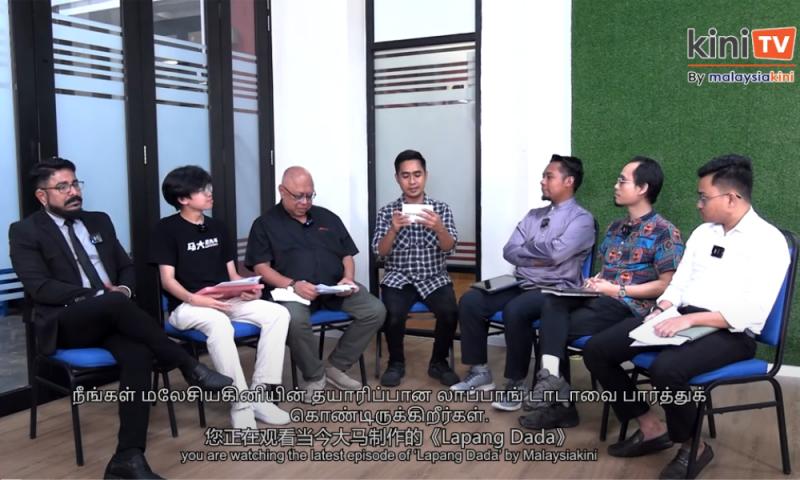LAPANG DADA | 'Quota should include factors like disability, gender'
The education system’s racial quotas must be further expanded to encompass other factors, said panellists in a KiniTV talk show, Lapang Dada, while critics said the current system must be maintained.
In the episode titled “Rethinking racial education quotas”, the six panellists discussed whether the quota system in Malaysian education should transition towards a merit-based system instead.
Gerak deputy chairperson Zaharom Nain said there exist imbalances within the system that fail to take into account geography, gender and disabilities.
“I think our problem here is that we put too much focus on just race.
“The quota should take into account that in Malaysia, there are physical and mental disabilities, gender, geography and so on,” the University of Nottingham professor of communication and media studies said.
In partially agreeing with Zaharom, lawyer Aidil Khalid warned that meritocracy cannot be the answer as it does not take into account a population’s access to resources and will perpetuate further inequality.
Merit-based
Federation of Malay Students Union (GPMS) Mohd Wafiyuddin Al-Awal agreed on this point, saying that migrating to a merit-based system would be dangerous.
Aidil added that this does not contradict the current system as the quota can be filled with those who need the spot.
“We can still have race-based quotas and at the same time, we fill it with those who need it.
“The bumiputera in Sabah and Sarawak, as mentioned earlier, had to climb a tree to get internet and so on.
“It’s the same for the Chinese, the Indian and others - they can get it too.
“In the end, I say that this race-based meritocracy does not deny and does not negate the requirements that have been mentioned,” the Malaysia Muslim Lawyers Association (PPMM) vice-president said.
Social contract
Wafiyuddin said he is open to the implementation of a meritocracy policy in the future as long as it is not subject to rigid regulations.
“We always have to take into account the concept of fairness in socio-economic issues between races,” he said.
Muslim Youth NGO Coalition secretariat Faizuddin Zai emphasised the importance of a national identity, which provides the bumiputera with special rights and privileges.
He argued the relevance of the so-called social contract, an unwritten bargain allegedly struck between Malays and minorities during independence, which accorded special benefits to the bumiputera.
The videos, comprising a two-part episode, are released on KiniTV’s official YouTube channel.
RM12.50 / month
- Unlimited access to award-winning journalism
- Comment and share your opinions on all our articles
- Gift interesting stories to your friends
- Tax deductable
